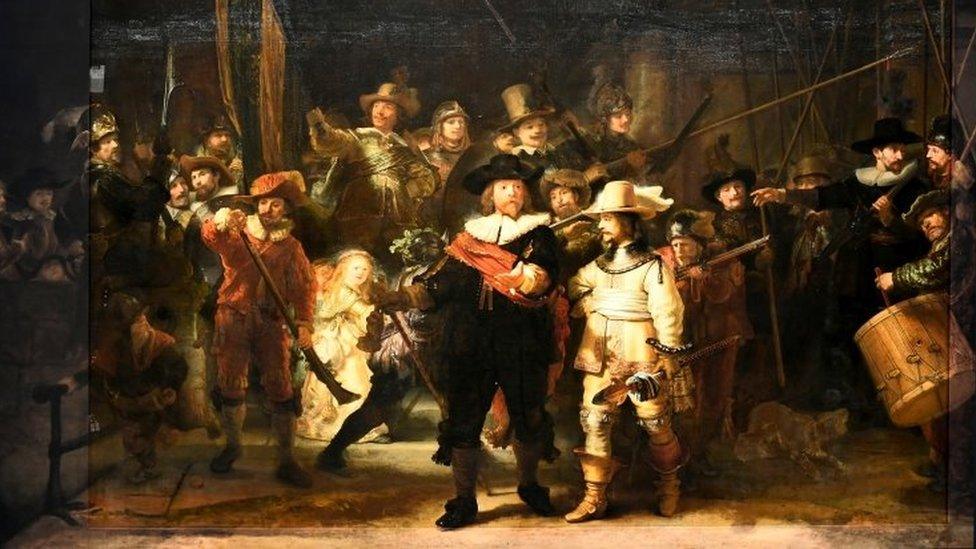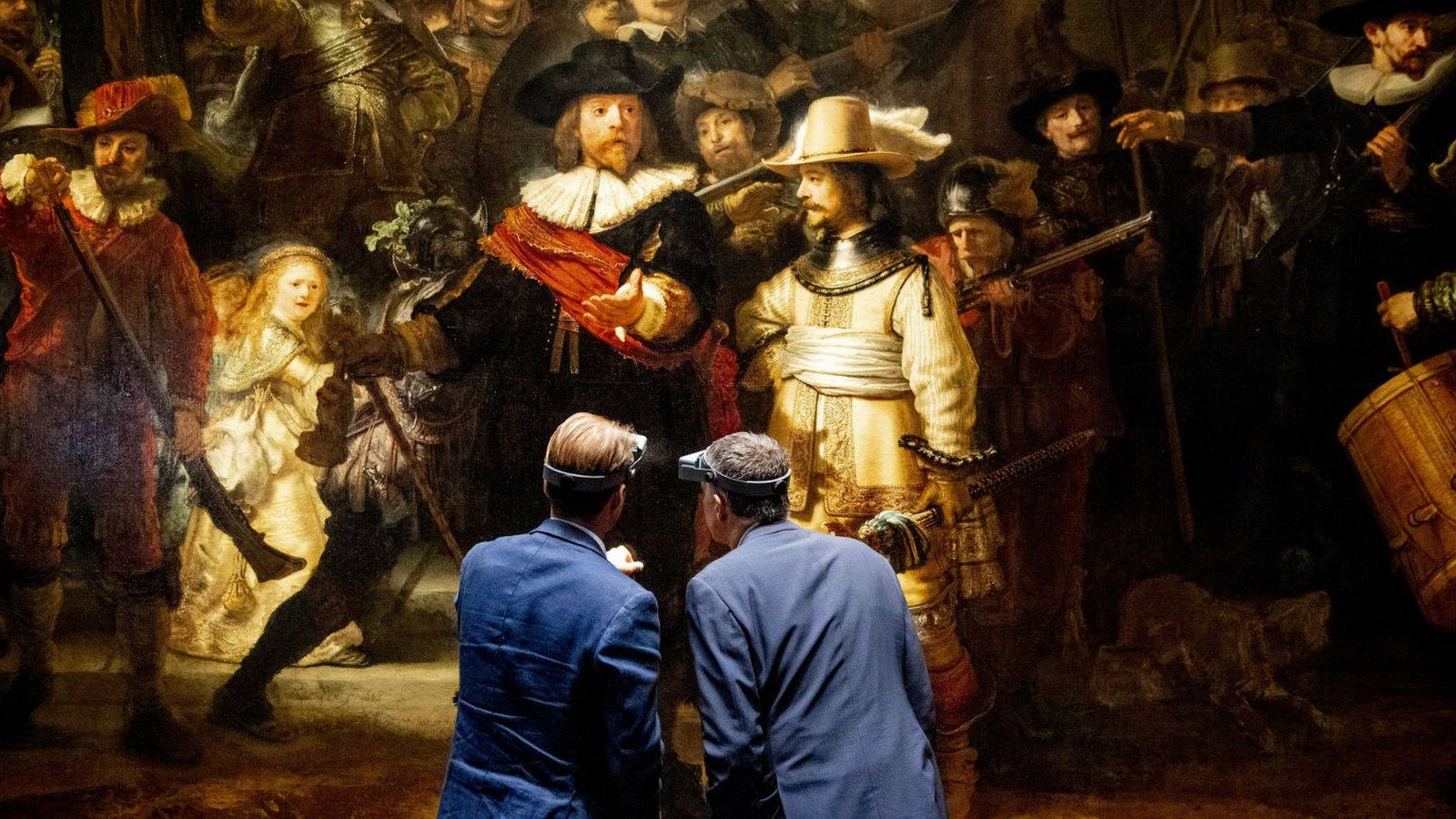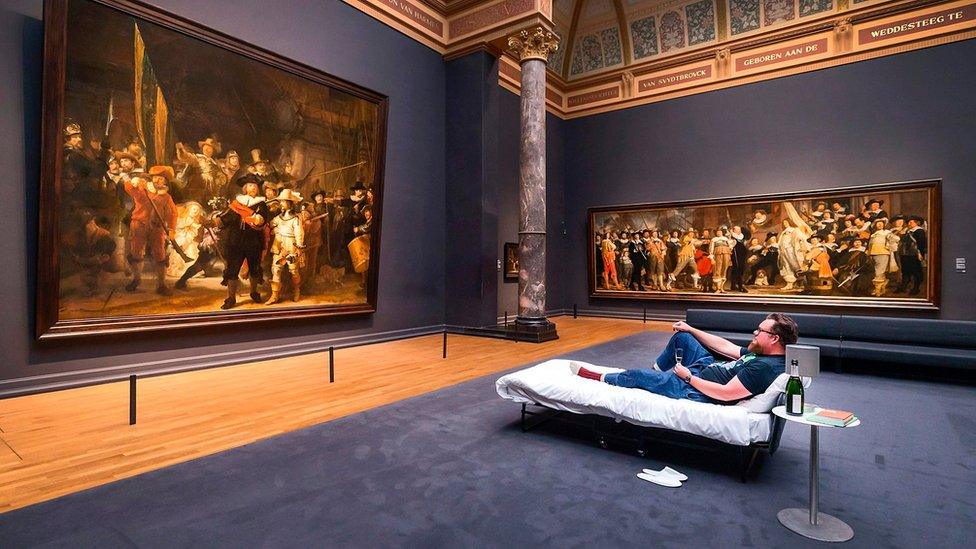AI helps restore Rembrandt's Night Watch masterpiece
- Published

Rembrandt's reconstructed masterpiece is now back on display at Amsterdam's Rijksmuseum
For the first time in more than 300 years, Rembrandt's masterpiece The Night Watch can again be seen in its entirety in the Netherlands.
Created in 1642 by the Dutch master, the huge picture was trimmed on all four sides in 1715 to fit between two doors in Amsterdam town hall.
The city's Rijksmuseum has now added the missing scenes from a small, early copy of the original.
It used artificial intelligence (AI) to mimic Rembrandt's style.
"The Night Watch as it is displayed in the Rijksmuseum is etched into our collective memory. Thanks to this reconstruction, we can now see that the composition as it was painted by Rembrandt was even more dynamic," Rijksmuseum director Taco Dibbits said.
"It is wonderful to be able to now see with our own eyes The Night Watch as Rembrandt intended it to be seen."
The Night Watch is considered Rembrandt's most ambitious work. It was commissioned by the mayor and leader of the civic guard of Amsterdam, Frans Banninck Cocq, who wanted a group portrait of his militia company.
Prior to the restoration the painting was nearly 4m tall and 4.5m wide (12.5 x 15 ft) and weighed 337kg (743lb). As well as being famous for its size, the piece is acclaimed for its use of dramatic lighting and movement.
In 1975, a man armed with a bread knife fought off a museum guard and slashed the painting, telling bystanders that he "did it for the Lord".
The piece was also attacked with a knife in 1911 and sprayed with a chemical in 1990, but only minor damage occurred on both occasions that was relatively easy to repair.
The historic restoration of Rembrandt's The Night Watch
Related topics
- Published8 July 2019

- Published2 March 2019
- Published2 June 2017
